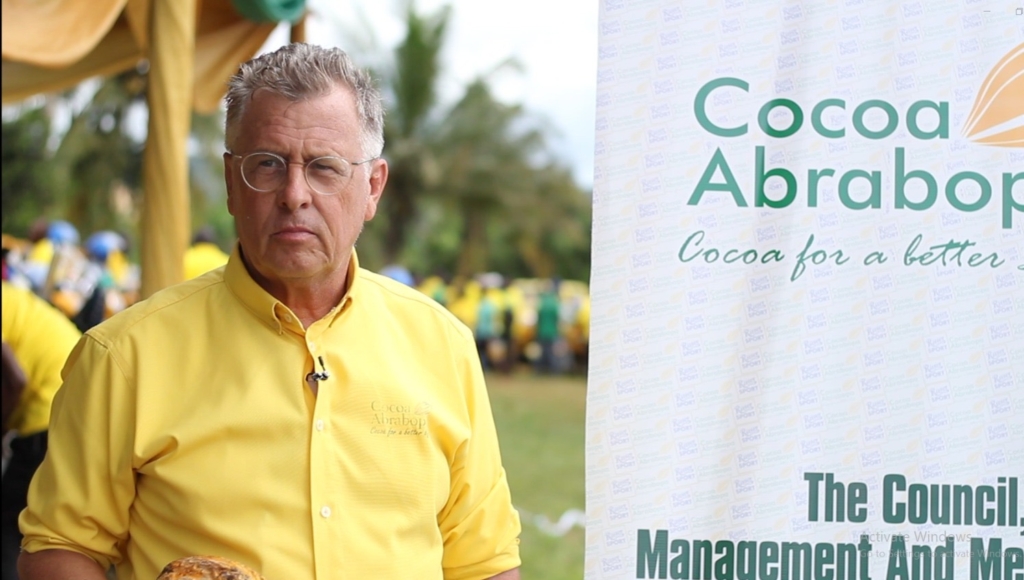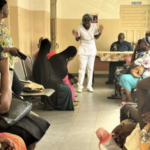
Farmer organization, Cocoa Abrabopa Association (CAA), is partnering with Ritter Sport to support its farmer groups in the Western South cocoa region with additional livelihood interventions for sustainable cocoa production.
The support initiative, which includes access to transport and water, is to also empower the cocoa farmers to access additional income streams aside from cocoa farming.
This forms part of a drive to help address poverty among cocoa-growing communities, farmers and households in the country.

Council Chairman of the Association, Ismaila Pomasi, explained that the living conditions of farmers will change with the interventions for the various communities.
“We believe that to sustain the industry, you must ensure the farmer is empowered and this can be done by ensuring you increase the revenues of the farmers and also reduce cost, including all costs associated with carting the cocoa from the farm,” he said.

The Alternative Livelihood Initiative of CAA targeted 620 members and their households.
The beneficiary farmer groups were drawn from Simpa, Gwira, Kwakukrom, Attakrom, Esuso, Wassa Nkran, Akotom, Ayensukrom, Bomba, Adum Banso, Ningo, Bonsawire, Kofi Gyan and Subiriso cocoa districts, all in the Western South region of Ghana.

Based on specific community needs, the alternative livelihood items requested by the various farmer groups include borehole water system with washrooms, tricycles, spraying and blower machines to support their farming business.
“From our needs assessment, it was concluded that most of the interventions the farmers will need to support them will be geared towards transportation and water facilities,” observed Wilfred Apiung, Sustainability Manager for CAA.

The intervention will help boost their domestic income from cocoa and other agricultural products through living income interventions, shade trees planting, farmer land registration, supportive child labour monitoring and remediation system (CLMRS) and the farmer business school (FBS) initiatives.

“As a woman farmer, I’m able to prune my farm and also apply certain farming techniques and knowledge to harvest good yields, which have helped raise my income to improve my livelihood and support my children’s education. All these became possible as I joined the Cocoa Abrabopa Association,” said Agnes Arthur.

Chief Finance and Operations Manager for CAA, Patrick John Van Brakel, is confident the interventions will spur the communities to higher productivity.
Threat of Galamsey [Illegal mining]
Cocoa farmer, Abraham Kwam, is also excited to have benefited from the interventions.
“I regarded farming as punishment while I was in school but I have come to appreciate farming to be such a progressive venture. I’ve also come to realize the importance of forming good alliances for good advice to make it in life,” he stated.

But the Chief of Adum Banso, Nana Kwandoh Brempong III, has bemoaned the spate at which farmlands are being given away for illegal mining operations.
He cautioned farmers in his traditional area against the practice, saying any farmer who attempts to cut down cocoa trees for galamsey purposes will be arrested and prosecuted.
“The farmers should know that their farmlands belong to the stool and they are only asked to earn a living by tilling the land, and receive good seedlings and other support to be productive on the farm. Therefore, any farmer who gives out the farm for illegal mining will be arrested. This practice is not good for the future generation,” he said.

According to the chief, cocoa farming is a sustainable venture unlike illegal mining which causes more havoc than good.
“The income generated from galamsey activities is only for a short while and also destroys the land which the future generation will need to work on. We are therefore pleading that this illegal mining menace is curtailed. Farmers should not be giving out their farmlands for galamsey,” said Nana Kwandoh.

Western South Regional Pollination Coordinator, Cocoa Health and Extension Division (CHED), Jonathan Nayinah, urged farmers in cocoa growing communities to join beneficiary associations like Cocoa Abrabopa Association to enhance their welfare.




